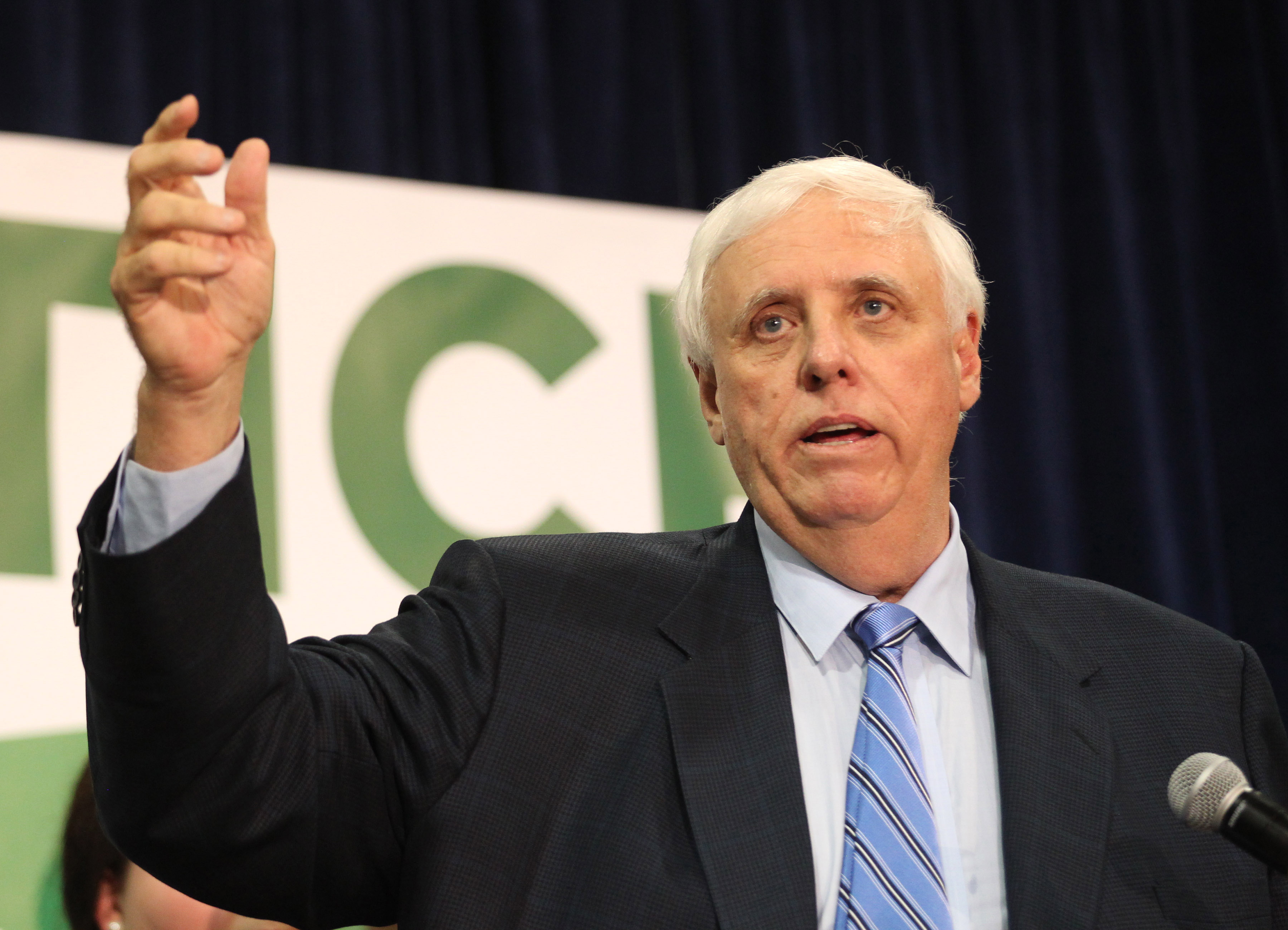CHARLESTON, W.Va. — Jim Justice has submitted a new financial disclosure form to the state Ethics Commission, this time with an updated job title, employer and employment address.
Governor.
State of WV.
State Capitol.
Justice, owner of The Greenbrier resort and listed by Forbes as West Virginia’s richest man, filled out one of these forms last spring when he filed to run for governor.
As the state’s newly-elected governor, Justice had to fill out a new one.
MORE Read Jim Justice’s financial disclosure form.
The narrative that has followed Justice throughout the campaign and now in the early days of his new job is how will he navigate the conflicts presented by his vast business empire — which also includes coal, timber and agriculture holdings — while also being the chief executive officer of state government with all of its roles and agencies.
A few days ago, Justice addressed the topic by sending out a letter to state employees. It said he would like to pursue a blind trust but the process has been slowed by the size of his business portfolio. Meanwhile, he said he has put his daughter, Jill, in charge of The Greenbrier and his son, Jay, in charge of the coal operations.
While his form last spring listed Justice as chief executive officer of The Greenbrier, the updated form does not. The resort is listed among Justice’s sources of income over the past year and remains listed among his business holdings.
“I’ve separated myself from my business holdings by putting my children in charge of our family’s business operations. Being Governor is a full-time responsibility,” Justice wrote in his letter.
“I want to put all of my assets in a blind trust; however, the process has been slowed down by the multitude of financial institutions that work with my family’s companies. I will continue to file very detailed ethics reports, just like during the election, which lets everyone know about my family’s businesses and investments.”
He added that he doesn’t want to even give the appearance of a conflict of interest.
“I didn’t run for Governor for me; I ran to help the people of West Virginia. I don’t want a thing from this office. The last thing I want is a conflict of interest between my family’s businesses and state government. Even the slightest whiff of a conflict won’t fly with me.”
Justice wrote in the letter that before he was elected he employed 2,719 West Virginians.
“Shuttering all my companies is not an option; It would mean good people would lose their jobs and that just wouldn’t be right. I want to grow jobs, not lose jobs.”
His Republican opponent in the general election, then-Senate President Bill Cole, charged that Justice had too many financial holdings to untangle as governor.
“I think his interactions with state government are huge,” Cole said in an interview last fall. “A blind trust would be imperative.”
Cole continued, “I see in every aspect of his business, there’s troubling connections. A blind trust at a very minimum is going to be critical here.”
At the height of the campaign, Justice was called the nation’s top mine safety delinquent in a report by National Public Radio because of what his companies owed to enforcement agencies. At the time, NPR reported, Justice’s mining companies owed $15 million in six states, including property and minerals taxes, state coal severance and withholding taxes, and federal income, excise and unemployment taxes, as well as mine safety penalties, according to county, state and federal records.
By last week, The Associated Press reported that mining operations owned by Justice still owed $4.6 million in safety fines and penalties to the the Mine Safety and Health Administration. The scope of the AP report was narrower than the earlier National Public Radio report.
On the financial disclosure form submitted this week to the state Ethics Commission, Justice marked a box saying he owes no debts larger than $5,000 to anyone residing or doing business in the state. One of the exemptions noted says form filers do not have to report “debts resulting from the ordinary conduct of your business, profession or occupation.”
As with the original, the financial disclosure form that Justice has filed with the Ethics Commission is lengthier than most.
His list of businesses goes on for 116 lines, starting with A&G Coal Corporation of Roanoke, Va., and rolling on toward WV Timber of Beaver, Raleigh County.
In between are all manner of mining, timber agriculture and hospitality operations. Notable is Justice Family Farms, the branch of business where Justice first got his start. The Greenbrier is also on the list, obviously.
Justice lists 14 areas of sales or contracts with government agencies — all organizations that use his Glade Springs resort or The Greenbrier for conferences: Buffalo Elementary School, City of Charleston, Governors Highway Safety Program, state Department of Military Affairs and Public Safety, state Department of Transportation, state Division of Corrections state Division of Justice and Community Sservice, state Division of Rehabilitation Services, state Massage Therapy Licensure Board, West Virginia State Treasurer’s Office, West Virginia State Women’s Tennis, WVU Gold & Blue spring game coaches, Marshall University Department of Orthopaedic Surgery and WV School of Osteopathic Medicine.
He lists 63 investment holdings — including interests of $10,000 or more in several businesses with operations in West Virginia, such as Caterpillar, Proctor & Gamble, Chemours, PPG, West Virginia Media Partners and Morgantown Industrial Park Associates.
Justice also includes two job descriptions for himself.
One is governor.
The other job is “head boys and girls basketball coach” for Greenbrier County Schools.



